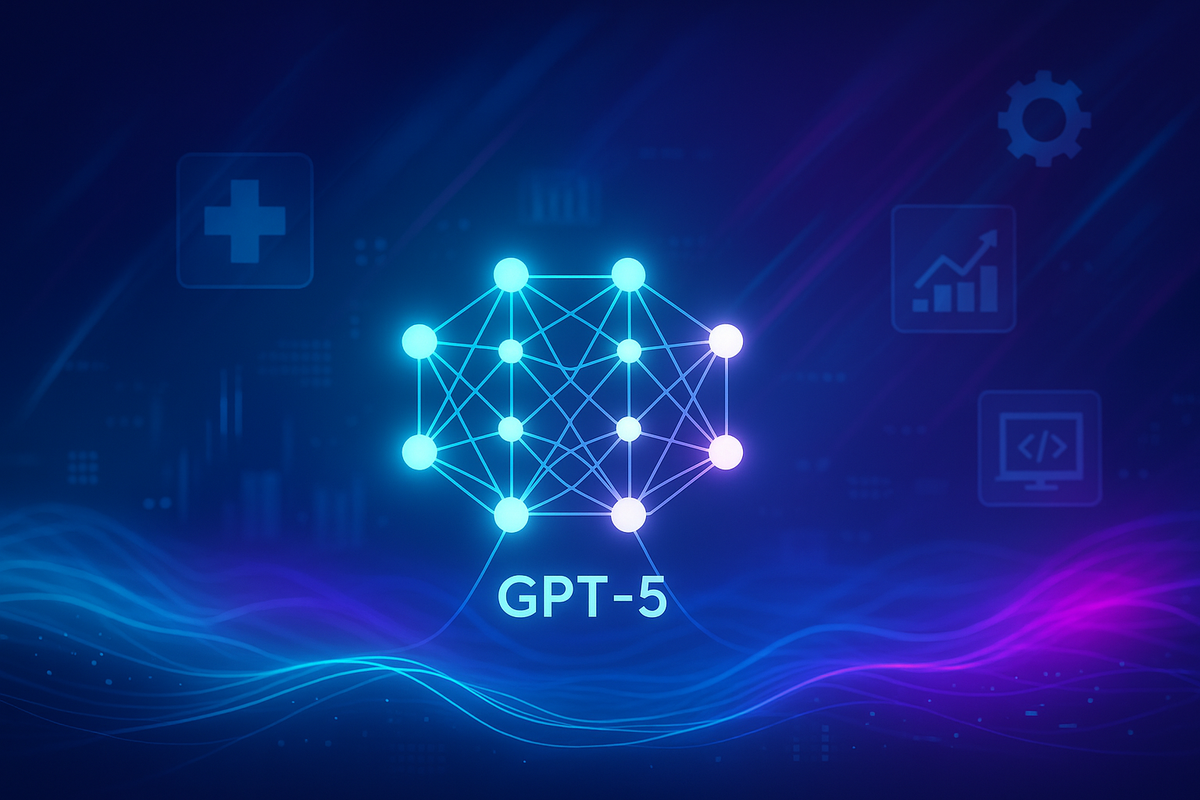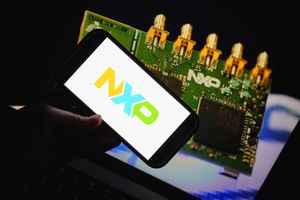
The artificial intelligence landscape has been irrevocably altered with the official release of OpenAI's latest-generation model, GPT-5, on August 7, 2025. Building upon the foundational advancements of its predecessors, GPT-5 represents a monumental leap in AI capabilities, promising to redefine human-computer interaction and fundamentally transform a myriad of industries. This release is not merely an incremental upgrade but a paradigm shift, introducing unprecedented levels of multimodal understanding, autonomous functionality, and contextual awareness that will ripple through global markets and reshape the very fabric of how businesses operate and how individuals interact with technology.
The immediate implications are profound, signaling a new era where AI moves beyond assistive roles to become an active, intelligent agent capable of complex problem-solving and autonomous task execution. From healthcare diagnostics to financial analysis, and from software development to creative content generation, GPT-5's advanced features are poised to unlock efficiencies, foster innovation, and create entirely new economic opportunities, while simultaneously posing significant questions about workforce adaptation and ethical deployment.
What Happened and Why It Matters
The official launch of GPT-5 by OpenAI (Private Company) on August 7, 2025, marks a pivotal moment in the evolution of artificial intelligence. This release is significant not just for its enhanced performance but for its integrated, unified approach to AI, aiming to eliminate the need for specialized models for different tasks. GPT-5 is available in various configurations, including gpt-5, gpt-5-mini, gpt-5-nano, and gpt-5-chat, each designed to cater to diverse use cases, from high-demand enterprise applications to lightweight mobile integrations.
The core of GPT-5's transformative power lies in several key advancements. Firstly, its multimodal capabilities have been significantly expanded. While GPT-4o introduced real-time text, image, and voice processing, GPT-5 pushes this frontier by incorporating native video and audio processing. This means the model can seamlessly understand and generate content across text, images, voice, and video, enabling more immersive and contextually rich interactions. Imagine an AI that can not only transcribe a video but also understand the nuances of movement, sound, and overall context, leading to applications in detailed video summarization, automated content creation, and advanced surveillance.
Secondly, GPT-5 boasts advanced coding abilities that go far beyond previous iterations. It can process entire codebases, offer detailed feedback on architectural impacts, generate unit and integration tests, and assist with error detection and debugging by identifying root causes and suggesting solutions. Reports even suggest it can handle complex coding tasks with minimal prompting, with OpenAI reportedly developing a programming-focused variant named "Lobster" specifically for developers. This capability is set to revolutionize software development cycles, making coding more efficient and accessible.
Perhaps the most groundbreaking feature is GPT-5's agentic functionality. This moves AI beyond basic text-based assistance towards autonomous AI agents capable of task execution, service integration, and workflow automation. GPT-5 can complete tasks independently by connecting with external tools and APIs, retrieving data, managing workflows, and processing requests with minimal user input. This means the AI can autonomously browse websites, fill forms, and perform multi-step operations, effectively acting as a "superhuman support rep" or an automated personal assistant.
Finally, the expanded context window of GPT-5 is a game-changer for long-form interactions. While previous models had limitations, GPT-5 is anticipated to handle over 32,000 tokens, with some speculation of up to 256,000 tokens or even 1 million tokens. This allows for more coherent discussions, deeper memory retention, and the ability to process large documents, extended chat histories, or entire codebases without losing context, significantly improving the quality and depth of AI interactions. These combined advancements signify a shift towards more intelligent, autonomous, and versatile AI systems that will profoundly impact how industries operate and innovate.
Winners and Losers in the AI Revolution
The advent of GPT-5 will undoubtedly create a new echelon of winners and losers across various industries, fundamentally reshaping competitive landscapes. Companies that swiftly integrate and leverage GPT-5's advanced capabilities are poised for significant gains, while those slow to adapt may find themselves at a considerable disadvantage.
Potential Winners:
- Cloud Computing Providers: Companies like Microsoft (NASDAQ: MSFT), with its significant investment in OpenAI and its Azure cloud platform, and Amazon (NASDAQ: AMZN), with Amazon Web Services (AWS), are set to be major beneficiaries. The increased demand for AI processing power, storage, and specialized infrastructure to run GPT-5 and its applications will drive substantial revenue growth for these cloud giants. Their existing relationships with enterprises and developers will facilitate rapid adoption.
- Software Development Tools & Platforms: Companies providing development environments, code repositories, and testing tools, such as GitHub (owned by Microsoft) and GitLab (NASDAQ: GTLB), could see increased usage as GPT-5's coding capabilities streamline development workflows. Tools that integrate seamlessly with AI-powered code generation and debugging will become indispensable.
- AI-Native Application Developers: A new wave of startups and established tech companies focused on building applications specifically designed to leverage GPT-5's agentic and multimodal features will thrive. These could include companies developing advanced AI assistants, automated content creation platforms, or specialized industry solutions in healthcare or finance.
- Content Creation & Media Companies: Businesses in content generation, marketing, and media, such as Adobe (NASDAQ: ADBE) with its creative suite, could benefit immensely from GPT-5's ability to generate high-quality text, audio, and visual content at scale. This will enable hyper-personalization in marketing campaigns and significantly reduce content production costs.
- Customer Service & CRM Providers: Companies like Salesforce (NYSE: CRM) and Zendesk (NYSE: ZEN), which offer customer relationship management and support solutions, will find GPT-5's enhanced conversational abilities and agentic functionality invaluable. Integrating GPT-5 can lead to more efficient, personalized, and proactive customer service, reducing operational costs and improving customer satisfaction.
- Healthcare Technology Companies: Firms developing diagnostic tools, patient management systems, and research platforms, such as Cerner (acquired by Oracle - NYSE: ORCL) or Epic Systems (Private Company), could leverage GPT-5 for more accurate diagnostics, personalized treatment plans, and efficient administrative assistance, leading to better patient outcomes and operational efficiencies.
Potential Losers:
- Companies Reliant on Manual Data Processing: Industries heavily dependent on manual data entry, transcription, summarization, and basic content creation will face significant disruption. Businesses that fail to automate these tasks using GPT-5 could see their operational costs soar relative to AI-powered competitors.
- Traditional Software Development Outsourcing Firms: While some may adapt, firms offering basic coding and debugging services without integrating advanced AI tools might see reduced demand as GPT-5 automates significant portions of these tasks. The value proposition will shift from manual labor to AI orchestration and specialized problem-solving.
- Entry-Level White-Collar Jobs: Roles involving repetitive administrative tasks, basic data analysis, and rudimentary content generation are at risk of automation. This could lead to workforce displacement in sectors like administrative support, basic customer service, and content moderation, necessitating significant reskilling initiatives.
- Companies with Legacy IT Infrastructure: Businesses operating with outdated IT systems that cannot easily integrate with advanced AI models like GPT-5 will struggle to adopt these new capabilities, putting them at a competitive disadvantage. Significant investment in modernization will be required.
- Generic Content Farms: Businesses that rely on producing large volumes of low-quality, generic content will likely be outcompeted by GPT-5's ability to generate high-quality, contextually relevant content at a fraction of the cost and time.
The key differentiator for success will be the ability to strategically integrate GPT-5, not just as a tool, but as a fundamental component of business operations, fostering innovation and efficiency while navigating the ethical and societal implications of advanced AI.
Industry Impact and Broader Implications
GPT-5's release is not an isolated event but a significant acceleration within broader industry trends towards automation, hyper-personalization, and intelligent systems. Its capabilities fit seamlessly into the ongoing digital transformation efforts across sectors, pushing the boundaries of what is possible with artificial intelligence. The ripple effects will be felt across competitors and partners, necessitating strategic pivots and fostering new collaborative ecosystems.
In healthcare, GPT-5's ability to process vast amounts of medical literature, analyze patient data, and assist with real-time clinical decision support will accelerate personalized medicine and diagnostic accuracy. This could lead to a surge in demand for medical data scientists and AI ethicists, while potentially reducing the burden on medical professionals for routine tasks. Regulatory bodies will face the challenge of establishing frameworks for AI-driven diagnostics and treatment plans, ensuring patient safety and data privacy. Historically, similar technological leaps, such as the advent of electronic health records, have faced initial resistance but ultimately transformed the industry, and GPT-5 is poised for a similar, albeit more profound, impact.
The education sector will witness a shift towards highly personalized learning experiences. GPT-5 can adapt explanations to different learning styles, provide text-to-speech support, and make education more accessible. This could lead to a re-evaluation of traditional teaching methodologies and a greater emphasis on critical thinking and problem-solving skills that AI cannot easily replicate. Policy implications include ensuring equitable access to AI-powered educational tools and developing curricula that prepare students for an AI-augmented workforce.
In finance, GPT-5's capacity to analyze vast amounts of financial data, identify patterns, and extract valuable insights will empower businesses to make more informed, data-driven decisions. This will intensify competition among financial institutions, with those leveraging AI for predictive analytics and risk assessment gaining a significant edge. Regulatory bodies, such as the Securities and Exchange Commission (SEC) (US Government Agency), will need to address the implications of AI in algorithmic trading, market manipulation, and financial advisory services, ensuring fairness and transparency. The 2008 financial crisis highlighted the need for robust regulatory oversight in complex financial systems, and AI's increasing role will necessitate similar scrutiny.
The software development landscape will be fundamentally reshaped. GPT-5's ability to assist with code reviews, generate tests, and create documentation will accelerate innovation and reduce development cycles. This could lead to a shift in developers' roles towards AI orchestration and a surge of "AI-native" applications. Companies like Google (NASDAQ: GOOGL) and Meta (NASDAQ: META), already heavily invested in AI research, will likely integrate GPT-5-like capabilities into their developer tools and platforms, intensifying the race for AI talent and intellectual property. The broader implication is a potential democratization of software creation, allowing individuals with less coding expertise to build sophisticated applications.
Across all industries, the ethical implications of GPT-5's advanced capabilities, particularly its agentic functionality and expanded context window, will be paramount. Concerns around data privacy, algorithmic bias, accountability for autonomous actions, and the potential for job displacement will necessitate robust ethical guidelines and regulatory oversight. The debate around AI governance, already a global discussion, will intensify, with governments and international organizations grappling with how to harness AI's benefits while mitigating its risks. The historical precedent of the internet's rapid expansion, which brought both immense opportunities and unforeseen challenges, serves as a cautionary tale for the responsible deployment of such powerful technology.
What Comes Next
The immediate aftermath of GPT-5's release will likely see a rapid acceleration in its adoption across early-adopter industries. In the short term, we can expect a surge in companies experimenting with integrating GPT-5 into their existing workflows, particularly in areas like customer service, content generation, and software development. This initial phase will be characterized by a focus on optimizing current processes and achieving quick wins in efficiency and cost reduction. Businesses will be looking to leverage GPT-5's multimodal capabilities for enhanced customer interactions and its coding prowess to accelerate product development cycles.
Looking further ahead, the long-term possibilities are even more transformative. The "agentic functionality" of GPT-5 suggests a future where AI systems can autonomously manage complex, multi-step tasks, leading to entirely new business models and services. We could see the emergence of fully autonomous digital assistants capable of managing personal finances, scheduling complex travel itineraries, or even running small businesses with minimal human oversight. This will necessitate significant strategic pivots for many organizations, requiring them to re-evaluate their operational structures, workforce composition, and competitive strategies. Companies that can effectively integrate AI agents into their core operations will gain a substantial competitive advantage.
Market opportunities will emerge in areas such as AI ethics and governance consulting, specialized AI training and education, and the development of robust AI security solutions. Challenges will include managing the societal impact of job displacement, ensuring equitable access to AI technologies, and preventing the misuse of powerful AI capabilities. Regulatory bodies will face the daunting task of keeping pace with rapid technological advancements, potentially leading to new legislation around AI accountability, data privacy, and intellectual property.
Potential scenarios include a future where AI becomes an indispensable co-worker, augmenting human capabilities across nearly every profession, or a more disruptive scenario where significant portions of the workforce are automated, necessitating universal basic income or radical shifts in economic policy. Investors should closely watch companies that are not only adopting GPT-5 but are also investing heavily in AI research and development, building robust AI governance frameworks, and focusing on upskilling their workforce to adapt to an AI-augmented future. The next few months will be crucial in observing how industries begin to adapt and how the initial applications of GPT-5 shape the trajectory of this new AI era.
Conclusion
The release of OpenAI's GPT-5 marks a watershed moment in the history of artificial intelligence, signaling a profound shift in how businesses operate and how individuals interact with technology. The key takeaways from this event are the unprecedented advancements in multimodal understanding, advanced coding abilities, groundbreaking agentic functionality, and an expanded context window. These capabilities collectively position GPT-5 not merely as an incremental improvement but as a foundational technology poised to redefine productivity, innovation, and human-computer collaboration across virtually every sector.
Moving forward, the market will be characterized by a rapid acceleration in AI adoption, with companies vying to integrate GPT-5's power into their core operations. This will undoubtedly lead to significant competitive advantages for early and effective adopters, while those resistant to change may face considerable challenges. Investors should closely monitor companies that demonstrate a clear strategy for AI integration, particularly those in cloud computing, software development tools, and AI-native application development. The ability to leverage GPT-5 for enhanced customer service, streamlined content creation, and accelerated software development will be critical indicators of future success.
The lasting impact of GPT-5 will extend far beyond mere technological advancements. It will force a re-evaluation of workforce skills, ethical considerations in AI deployment, and the very nature of work itself. The coming months will be crucial in observing the initial applications and societal responses to this powerful AI. As the world grapples with the implications of such advanced intelligence, the focus will shift from "what AI can do" to "how we can responsibly and effectively integrate AI to build a more efficient, innovative, and equitable future." The journey has just begun, and the transformative potential of GPT-5 is only starting to unfold.





